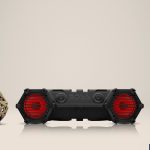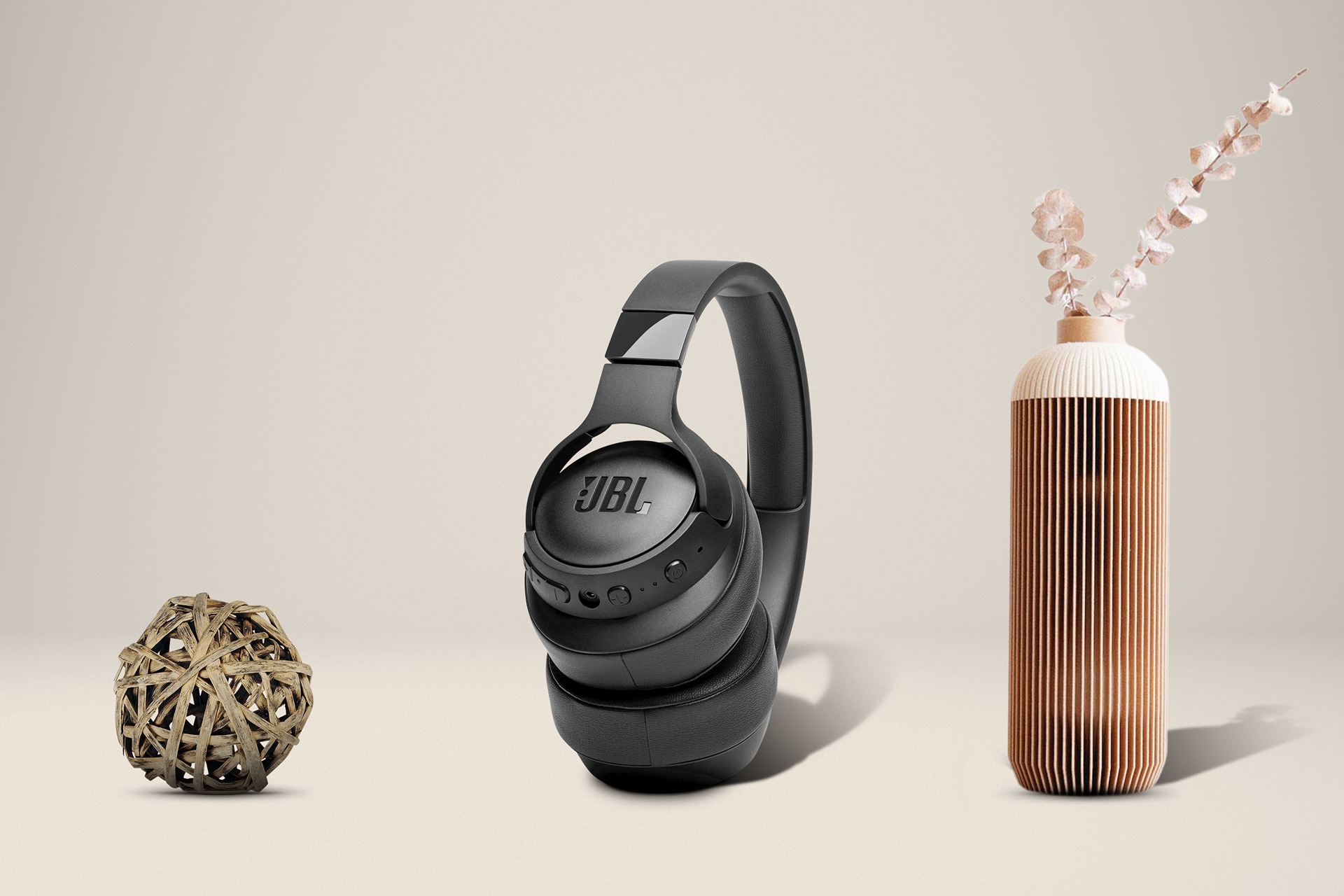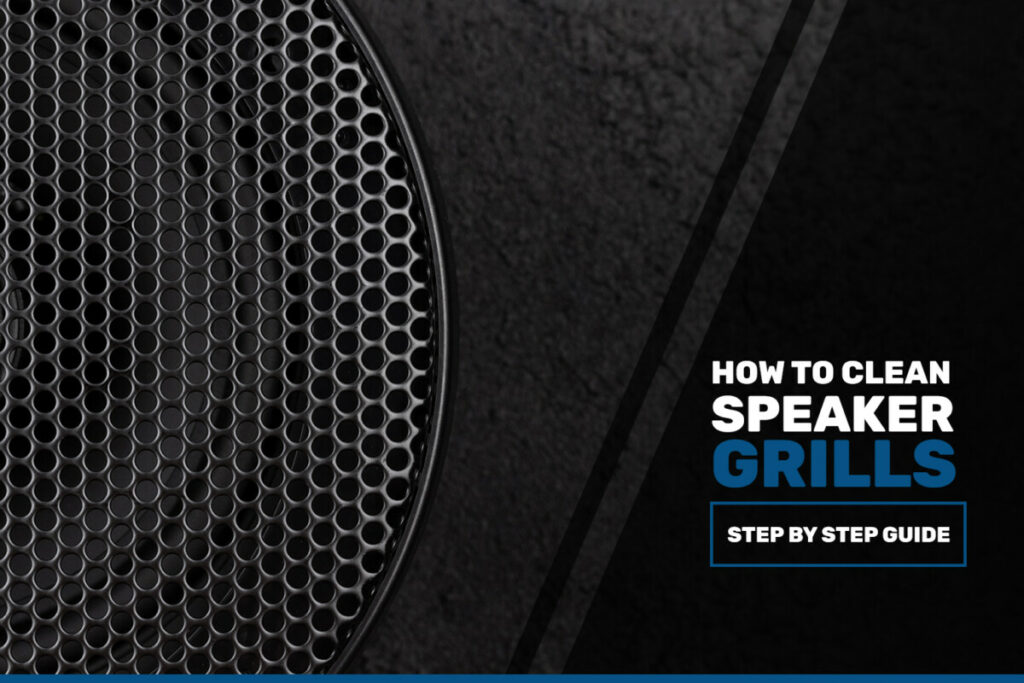
Welcome to our guide on how to clean your speaker grills. The grills on your speakers protect the delicate components inside, but over time can collect dust and debris wich can affect the sound quality.
Cleaning the grills can be a simple task but it should be done carefuly to ensure no damage is done. In this guide, we will be providing detailed instruction on how to properly clean your speaker grills, so you can keep your audio system in top working condition.
So, let’s get started on giving your speaker grills the TLC they deserve.
Cleaning Speaker Grills – Materials You Need
First and foremost, an important consideration is to know the materials one needs, and the overall equipment that will help you clean speaker grills include:
- Soft brush (such as a paintbrush or tothbrush)
- Microfiber cloth or lint-free cloth
- Vacuum cleaner with a brush attachment
- Mild detergent or cleaniing solution specifically designed for use on electronics
- Water
- Q-tips or coton swabs
- Compressed air can (optional)
The Cleaning Process: Step By Step Guide
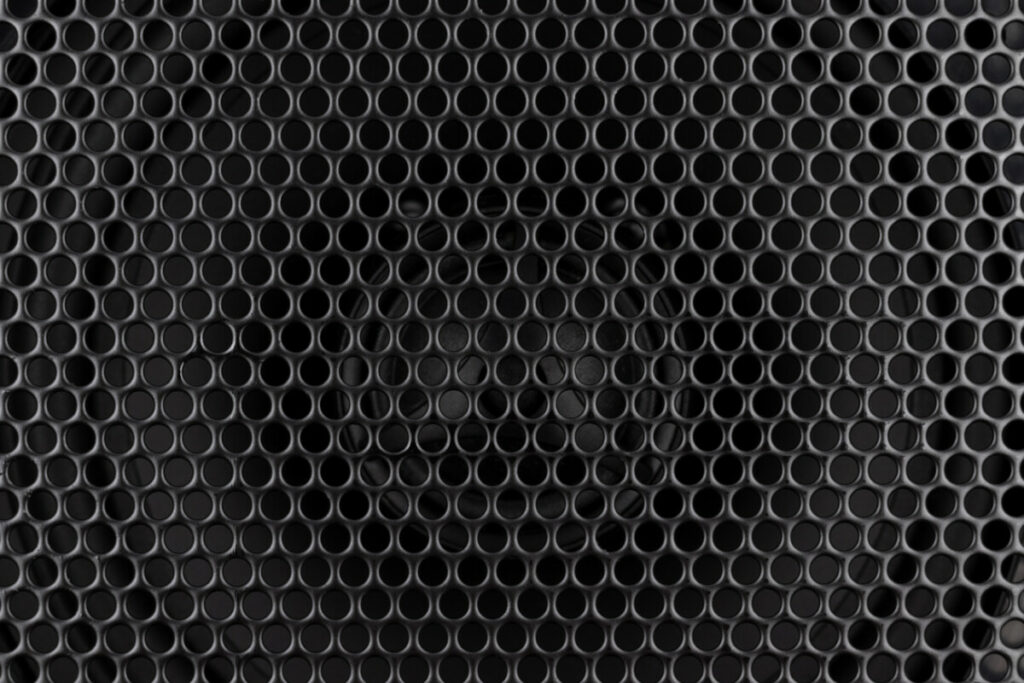
Have you ever wondered why do your speakers sound muffled sometimes? Cleaning speaker grills is an important task that should be done regularly to maintain the quality of sound and there are the steps to follow when cleaning speaker grills and they should be followed super carefully.
Including all the materials I mentioned above, the steps that you should follow on proper cleaning speaker grills include:
- Begin by inspecting the grills to identify any areas that need special attention such as dust and debris that are stuck in the grill.
- Use a soft brush to gently remove any dust or debris that is stuck in the grill. Use the brush to get into tight spaces or hard-to-reach areas.
- Use a microfiber cloth or lint-free cloth to wipe down the grills after brushing them.
- Use a vacuum cleaner with a brush attachment to remove any loose dust or debris from the grills. Gently agitate the grills to loosen any dirt or debris that may be stuck.
- Mix a small amount of mild detergent or cleaning solution specifically designed for use on electronics with water to create a cleaning solution. Use a dampened microfiber cloth or cotton swab to gently clean the grills with the solution. Avoid using too much water and be sure to dry the grills thoroughly after cleaning.
- Use Q-tips or cotton swabs to clean hard-to-reach areas of the grills.
- If necessary, use compressed air to blow out any dust or debris that may be stuck in tight spaces or hard-to-reach areas of the grills.
It’s important to be gentle when cleaning speaker grills, as excessive force can cause damage. Avoid using abrasive materials or cleaning solutions that could scratch the grills.
Use a soft brush and microfiber cloth to remove any loose dust or debris before using any cleaning solution. It’s also important to dry the grills thoroughly after cleaning to prevent water damage.
Things To Know When Cleaning Speaker Grills
Cleaning speaker grills may not be the most exciting task on your to-do list, but it’s essental for keeping your sound system sounding like a million bucks (or at least not like a cheap transistor radio from the 90s).
First, let’s talk about the elephant in the room (or rather, on the grills) – dust and debris. This buildup can affect sound quality in the same way that a thick layer of dust on a vinyl record would – by blocking or distorting the sound waves. But don’t wory, with a quick cleaning session, you’ll have your speakers sounding like they’re back in the prime of their youth.
Next, let’s talk about protection. Keeping the grills clean helps to protect the speakers from damage caused by dust and debris accumulation inside the speakers. It’s like a suit of armer for your speakers, keeping them safe from harm.
Now, onto the cleaning itself. Soft, lint-free cloth or a small brush is your best bet for removing dust and debris. But beware, using abrasive materials or harsh chemicals can damage the grills or even the speakers themselves, so be gentle.
And if your speaker grills are made of metal or plastic, make sure to use cleaning products that are safe for those materials. Nonetheless, if you happen to accidentally put water into your speaker while cleaning, it’s always important to know how to get water out of speakers beforehand.
Finally, consider the location of your speakers. If they’re in a high traffic area, like a party room or a living room with a lot of foot traffic, it may be necessary to clean them more frequently. It’s like taking a shower after a workout, you don’t want to smell bad.
I have also heard people ask whether speakers wear out or not, and for the most part it depends on how you take care of them. So don’t be a stranger, give your speaker grills a good cleaning every now and then, and enjoy optimal sound quality for years to come.
Types of Speaker Grills That Need Proper Cleaning
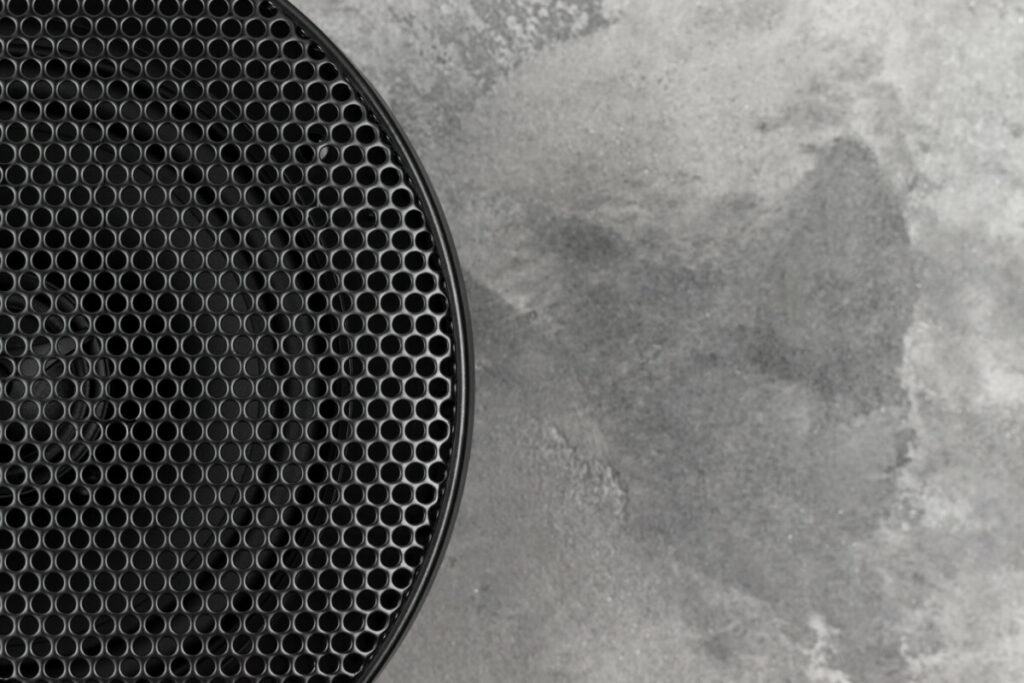
There are several types of speaker grills that definitely need to be cleaned properly in order to maintain optimal sound quality and prolong the life of the speakers:
Fabric Grills
Fabric speaker grills are common in many home theater systms and are often found on floor-standing speakers and bookshelf speakers. Dust, pet hair, and other debris can easily accumulate on the fabric, which can affect the sound quality and block the sound waves.
Metal Grills
Metal speaker grills are often found on outdoor speakers or speakers that are exposed to the elements. They are durable but can get dirty and dusty over time, which can affect the sound qualiy.
Plastic Grills
Plastic speaker grills are often found on portable speakers, in-wall speakers and in-ceiling speakers. They are lightweight and easy to clean, but they tend to accumulate dust and debris more easilyly.
Mesh Grills
Mesh speaker grills are often found on high-end speakers, they are designed to let sound waves pass through while protecting the speakers. However, dust, debris and even insects can accumulate on the mesh, which can affect the sound qualitys.
By keeping these types of speaker grills clean, you can ensure optimal sound quality and prolong the life of your speakers.
Final Words
So, as you can notice, cleaning speaker grills is one of the most important things to have in mind, as the dirt can have a considerable effect on the overall sound performance.
All the materials I mentioned will help you maintain the speaker grills more than properly, and if you follow the steps carefully, there is no doubt that you will do a successful job at the end. Good luck!
Equipment Tester & Reviewer
I’m an unbiased audio equipment tester & reviewer, dedicated to keeping you up-to-date on the latest and greatest in audio gear.

